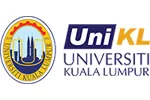We're moving! This site will be relocating to goingto.university in 2026. Please update your bookmarks to the new address.


Malaysia
Universiti Kuala Lumpur (Uni KL)| The award | How you will study | Study duration | Course start | Domestic course fees | International course fees |
|---|---|---|---|---|---|
| UG:Bachelor | Full-time | 4 years | January, September | - | MYR 19500 per year |
Many countries throughout the world have or are developing a strong manufacturing base, producing a range of products including household goods, electrical, do-it yourself, and automobile components. They are considered as the most rapidly growing sector of the materials industry consequently increasing the number of people who work in this field. Plastic and rubber, together with adhesives, resin and fibres, from a group material called polymers. Polymers have special properties which make them very useful in the modern world. The majority of polymers are derived from oil chemicals, although there are some naturally occurring polymers such as natural rubber and cellulose. The manufacture of products from polymers requires a knowledge and understanding of a broad range of principles and technologies. For example, to make a product from plastic, one must choose which plastic to use from a very large range of plastics available, and then decide which processing method is suitable to produce the desired shaped product. Once these have been decided, it will often be necessary to design and make a mould for the products, and then ensure this mould functions effectively. This does not include the considerable expertise required to design the product in the first place to ensure maximum strength, ease of function and an aesthetic shape. These engineers need to apply the traditional skills of chemical engineers, such as plant design, process design, thermodynamics, and transport phenomena, to various problem involving the production and use of polymers. Many of the engineers currently working in industry trying to solve these problems have background in either chemical engineering or polymers. The Polymer Engineering Option in Chemical Engineering is designed to produce engineers with booth sets of skills.
Career Path
The students who are interested in this programme are those who want to work in polymer-related organizations, including the largest chemical companies in the world, several of which are based in Malaysia.
Programme Contents
Year 1
Year 2
Year 3
Year 4
The fees for this Bachelor amounts 19,500 RM
Entry Requirements For This Course
a) Minimum qualification: A pass in Foundation in Science and Techology OR A pass in A-Level or its equivalent with pass in 3 subjects
b) A pass in related Diploma from a recognized institution or its equivalent
c) A pass in International Baccalaureate with at least 24 ponts and pass in Mathematics and Science
b) Fulfill UniKL minimum English Requirement - IELTS 5.5 / TOEFL 500
Below are some suggested courses at other providers that you may also be interested in:
Graduate Diploma of Engineering (Electrical Systems) Graduate Diploma
Engineering Institute of Technology
Find out moreGraduate Diploma of Professional Accounting (FedUniv at IIBIT) Graduate Diploma
International Institute of Business & Information Technology (IIBIT)
Find out moreGraduate Diploma in Information Technology (Enterprise Management) Graduate Diploma
University of South Australia
Find out moreSkills Knowledge Enhancement in Computer Science PG:Foundation
Liverpool Hope University
Find out moreConsider a Foundation or Pathway course at Universiti Kuala Lumpur (Uni KL) to prepare for your chosen course:
If you do not meet the entry requirements for this course then consider one of these courses from another institution:
There are 116 other courses listed from Universiti Kuala Lumpur (Uni KL). A selection of these are displayed below:
Aircraft Maintenance Licence Program - EASA Part 66 Certificate
Universiti Kuala Lumpur (Uni KL)
Find out moreBachelor of Aircraft Engineering Technology (Hons.) in Avionics UG:Bachelor
Universiti Kuala Lumpur (Uni KL)
Find out moreBachelor of Aircraft Engineering Technology (Hons.) in Mechanical UG:Bachelor
Universiti Kuala Lumpur (Uni KL)
Find out moreBachelor of Business Administration (Hons.) in International Business UG:Bachelor
Universiti Kuala Lumpur (Uni KL)
Find out moreBachelor of Business Administration (Hons.) in Islamic Finance UG:Bachelor
Universiti Kuala Lumpur (Uni KL)
Find out moreBachelor of Business Administration (Hons.) in Management and Entrepreneurship UG:Bachelor
Universiti Kuala Lumpur (Uni KL)
Find out moreJoin the StudyLink email list and never miss a chance to turn your study abroad dreams into reality!

Find out more about studying in Malaysia